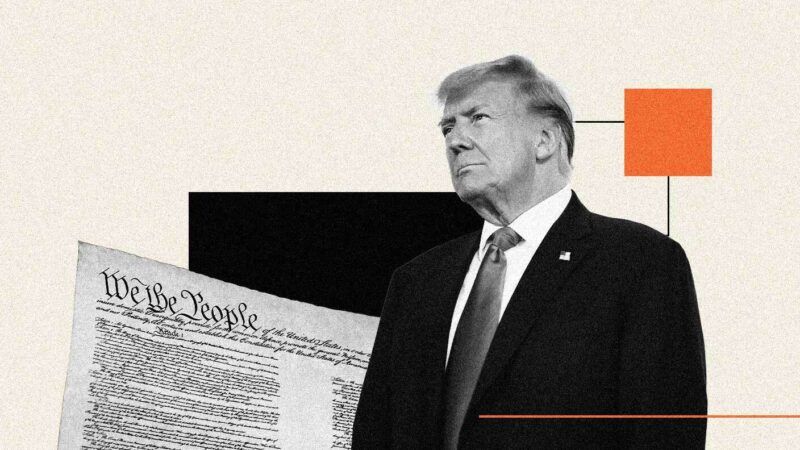Trump's Tariffs Violate the Constitutional Separation of Powers
The Supreme Court has ample precedent to rule against Trump’s trade war.

President Donald Trump has unilaterally imposed tariffs on much of the world. Yet the authority to impose tariffs is nowhere to be found in Article II of the Constitution, which is where the limited powers of the president are enumerated. Rather, the authority "to lay and collect Taxes, Duties, Imposts and Excises," as well as the authority "to regulate Commerce with Foreign nations," is to be found exclusively in Article I, which is where the powers of Congress are spelled out.
Trump's trade war thus usurps the constitutional authority of Congress in violation of the separation of powers.
The U.S. Supreme Court has confronted this sort of executive malfeasance before and struck it down with appropriate vigor in a number of notable cases. In Biden v. Nebraska (2023), for example, the Court declared President Joe Biden's student debt cancellation plan to be unlawful because it was an example of "the Executive seizing the power of the Legislature."
Likewise, in Youngstown Sheet and Tube Company v. Sawyer (1952), the Court rejected President Harry Truman's claim that his "inherent power" as president allowed him to seize control of most privately owned American steel mills under the guise of national security. "The President's order does not direct that a congressional policy be executed in a manner prescribed by Congress—it directs that a presidential policy be executed in a manner prescribed by the President," the Court observed. Yet "the Founders of this Nation entrusted the lawmaking power to the Congress alone in both good and bad times." Indeed, the Court added, "it would do no good to recall the historical events, the fears of power, and the hopes for freedom that lay behind their choice. Such a review would but confirm our holding that this seizure order cannot stand."
Then there is Schechter Poultry Corp. v. United States (1935). At issue was the National Industrial Recovery Act of 1933, a far-reaching New Deal statute that purported to give President Franklin Roosevelt the authority to centrally plan much of the U.S. economy via price-fixing and other economic controls, all in the name of combating the Great Depression.
However, as the Supreme Court unanimously pointed out in Schechter, "extraordinary conditions do not create or enlarge constitutional powers." Neither Congress nor the president may "transcend the imposed limits because they believe that more or different power is necessary." Furthermore, just as the president may not seize power from Congress, Congress may not surrender power to the president. In the words of the Court, the legislative branch "is not permitted to abdicate or to transfer to others the essential legislative functions with which it is thus vested." The congressional abdication at the heart of the National Industrial Recovery Act was therefore ruled "an unconstitutional delegation of legislative power." That principle is known as the non-delegation doctrine.
When Trump's tariffs eventually come up for judicial review, the Supreme Court should take guidance from such past cases. Much like Biden, Truman, and Roosevelt before him, Trump has invoked the specter of an "emergency" to justify the use of powers that the Constitution unequivocally placed in the hands of Congress alone.
Put differently, the Supreme Court has every reason to rule against Trump's tariffs and ample precedent to support its decision to do so.
